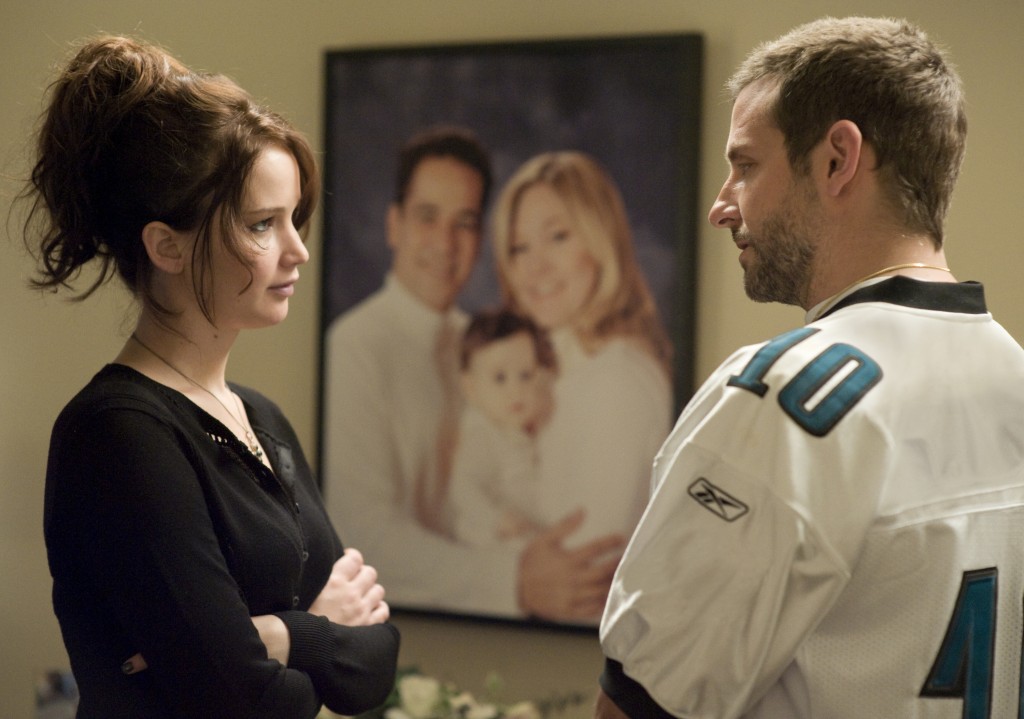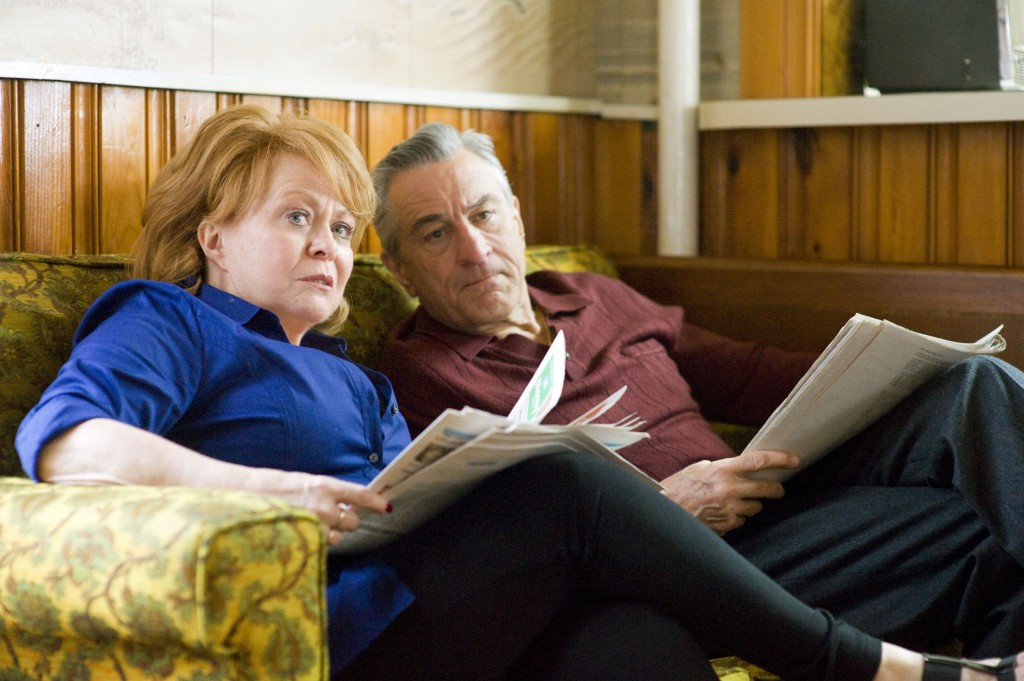“What do you think you are, for Chrissake, crazy or somethin’? Well you’re not! You’re not! You’re no crazier than the average asshole out walkin’ around on the streets and that’s it.”
– Randall P. McMurphy, One Flew Over the Cuckoo’s Nest (1975)
David O. Russell’s Silver Linings Playbook has a similar attitude towards mental illness as Milos Forman’s classic One Flew Over the Cuckoo’s Nest in the sense that they both believe there can be a fine line between personality and craziness. The difference between the two is that while Cuckoo’s Nest was always aware of the complexities of mental instability, there’s an odd sense in Silver Linings Playbook that anything can be fixed, you just have to try hard enough.
The film follows Pat (Bradley Cooper), recently released from the psychiatric ward he was sent to after brutally attacking his wife’s lover. He’s determined to get her back, and believes a positive attitude and a leaner body will achieve this, although it’s fairly clear from the outset that she’s not interested. He moves in with his mother Dolores (Jackie Weaver) and father Pat Sr. (Robert De Niro), the latter of whom is superstitious and also has a violent past, although he was never diagnosed with anything so nobody treats him any differently (“I make a lot of money, who cares if I do this thing or that?”).
Pat meets Tiffany (Jennifer Lawrence), a recent widower who convinces him to help her out in a dance competition and in return she’ll help him getting his wife back. Clashing at first, the two become close and really that they become at least friends by the end should be clear from the moment they meet. It’s straightforward stuff. This is the sort of film Hollywood loves to throw awards at, because it makes a difficult issue easier than it should be.
That’s not to say Silver Linings Playbook is bad. It’s an entertaining film with a tight script, but shaped more like a romantic comedy than anything seriously wanting to address mental illness. O. Russell has always had a fantastic ear for dialogue, and there are some great moments. Pat’s inability to screen anything he says is particularly funny and the chemistry between Cooper and Lawrence is excellent, considering their age difference. There’s also some nice insight into how people are treated once they’ve been branded as outsiders. What hope do you have when even your parents look at you differently?
It’s a shame then, that towards the final act most of the focus shifts from Pat and Tiffany’s unique personalities towards a formulaic romantic comedy resolution. It feels cheap, especially for O. Russell, who’s already proved he’s capable of much more.
The performances are great, and it’s nice to see Cooper handle a role with a bit of substance. Robert De Niro is also welcome, although it will take a lot more to climb out of the movie hell he’s been lingering in for the past decade. Their relationship is probably the most affecting aspect of the film. There’s a strong sense that Pat Sr. knows exactly how much his son has turned out like him, and keeps him at a distance because of it.
Silver Linings Playbook works as a solid piece of entertainment, with a better script and better performances than these sort of romantic comedies usually benefit from. There’s just something slightly incongruous about tying up a film about mental illness this neatly. Maybe it’s just me, but a lot of the film felt like all silver lining and no cloud.

